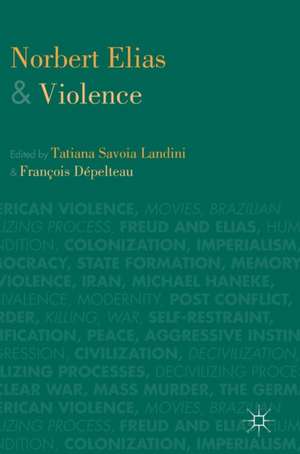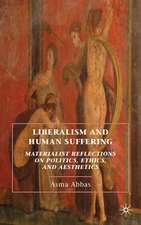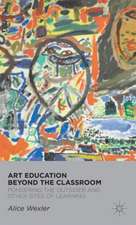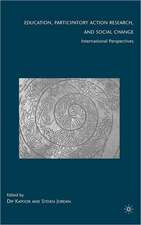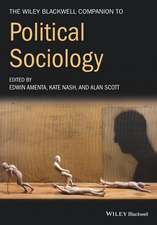Norbert Elias and Violence
Editat de Tatiana Savoia Landini, François Dépelteauen Limba Engleză Hardback – 21 mar 2017
Preț: 641.38 lei
Preț vechi: 754.56 lei
-15% Nou
Puncte Express: 962
Preț estimativ în valută:
122.73€ • 133.73$ • 103.42£
122.73€ • 133.73$ • 103.42£
Carte tipărită la comandă
Livrare economică 23 aprilie-07 mai
Preluare comenzi: 021 569.72.76
Specificații
ISBN-13: 9781137561176
ISBN-10: 1137561173
Pagini: 240
Ilustrații: XI, 232 p. 2 illus.
Dimensiuni: 148 x 210 x 16 mm
Greutate: 0.45 kg
Ediția:1st ed. 2017
Editura: Palgrave Macmillan US
Colecția Palgrave Macmillan
Locul publicării:New York, United States
ISBN-10: 1137561173
Pagini: 240
Ilustrații: XI, 232 p. 2 illus.
Dimensiuni: 148 x 210 x 16 mm
Greutate: 0.45 kg
Ediția:1st ed. 2017
Editura: Palgrave Macmillan US
Colecția Palgrave Macmillan
Locul publicării:New York, United States
Cuprins
1. Introduction.- 2. War, Hope, and Fear. – 3. Writings on Violence at the End of a Long Life.- 3. Figurational Analysis of Michael Haneke’s Time of the Wolf.- 4. Violence and Civilité: The Ambivalences of the State.- 5. Elias’ Civilizing Process and the Janus-faced of Modernity.- 6. Civilisation and Violence at the Periphery of Capitalism: Notes for Rethinking the Brazilian Civilizing Process.- 7. Self-Inflicted Wound: On the Paradoxical Dimensions of American Violence.- 8. Norbert Elias and State-building after Violent Conflict.- 9. Figurational Approach and Commemorating Violence in Central and Eastern Europe.- 10. Parliamentary Form of Government, Habitus, and Violence: The Case of Iran (1906-1925).
Notă biografică
François Dépelteau is Professor of Sociology at Laurentian University, Canada. He is a specialist in sociological theory and relational sociology, and has published many books and articles in journals such as Sociological Theory and The International Review of Sociology.
Tatiana Savoia Landini is Associate Professor at Universidade Federal de São Paulo, Brazil. She is a specialist in the figurational and processual sociology of Norbert Elias and on the topic of sexual violence against children and adolescents.
Textul de pe ultima copertă
This book presents key conceptualizations of violence as developed by Norbert Elias. The authors explain and exemplify these concepts by analyzing Elias’s late texts, comparing his views to those of Sigmund Freud, and by analyzing the work of filmmaker Michael Haneke. The authors then discuss the strengths and shortcomings of Elias’s thoughts on violence by examining various social processes such as colonization, imperialism, and the Brazilian civilizing process—in addition to the ambivalence of state violence. The final chapters suggest how these concepts can be used to explain difficulties in implementing democracy, grappling with memories of violence, and state building after democracy.
Caracteristici
Sheds critical light on one of the most salient social ills of contemporary society Attempts to identify and fill the gaps in Norbert Elias's understanding of violence Deals with a range of diverse topics, from martial arts to contemporary terrorism
